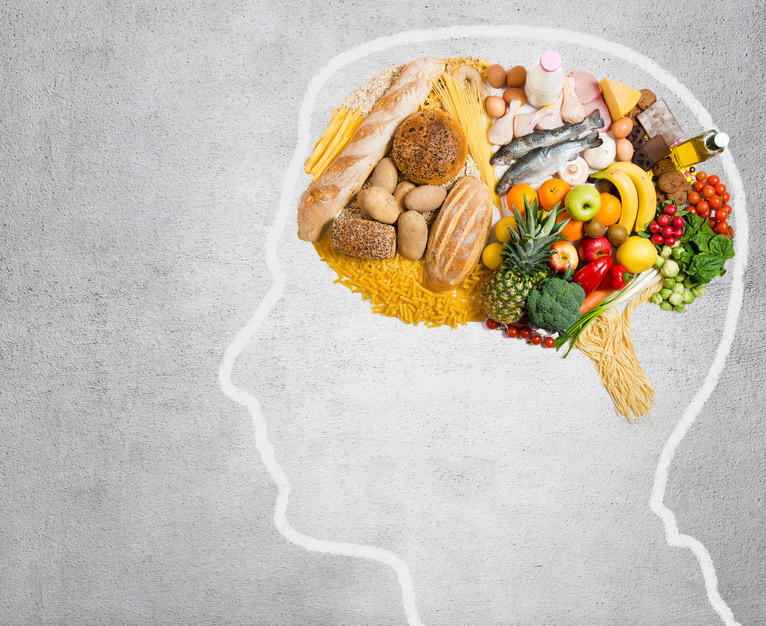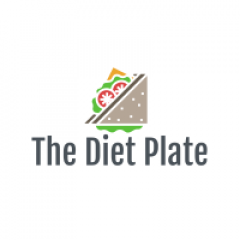
In today’s fast-paced world, the significance of nutrition in preventing chronic diseases cannot be overstated. What we consume has a profound impact on our health and well-being. Proper nutrition can be a powerful tool in reducing the risk of chronic diseases and promoting overall vitality. This comprehensive guide explores the key aspects of disease-preventive diets, offering valuable insights and practical tips to help you make informed choices for a healthier life.
Proper nutrition can also help you fortify your mental health, if you ever asked yourself how to prevent academic burnout, vitamin-reach foods are the way to go.
Understanding the Link Between Nutrition and Chronic Diseases

Proper nutrition is not only about satisfying hunger; it is the cornerstone of preventing chronic diseases. Our dietary choices directly affect our risk of conditions such as heart disease, diabetes, cancer, and obesity. To comprehend the connection between nutrition and these ailments, it’s essential to delve into the mechanisms at play.
Nutrient-rich foods, such as fruits and vegetables, are brimming with vitamins, minerals, and antioxidants that fortify the body’s defenses against diseases and can also provide you with a significant bioboost. They also help maintain healthy weight and blood pressure, reducing the likelihood of obesity and hypertension. Additionally, a balanced diet supports the immune system, fostering resistance against infections and chronic inflammation.
Conversely, diets high in processed foods, saturated fats, and sugary beverages can lead to inflammation, insulin resistance, and oxidative stress. These factors are primary drivers of chronic diseases. By embracing the science of nutrition, individuals can make informed choices that tilt the balance in favor of their health. That’s how some of the patients who did joint pain treatment in Phoenix improved drastically their immune systems, by following the following bits of advice!
The Foundations of a Disease-Preventive Diet
Embarking on a journey towards a disease-preventive diet begins with understanding the core principles. It involves incorporating a wide array of nutrients and making thoughtful choices about the foods you consume daily.
1. Balanced Macronutrients: A disease-preventive diet should consist of a balance between carbohydrates, proteins, and healthy fats. Carbohydrates provide energy, proteins support growth and repair, and healthy fats maintain cell structure and aid in nutrient absorption. By ensuring a balance, you optimize your body’s functions.
2. Whole Grains and Fiber: Whole grains such as brown rice, quinoa, and whole-wheat bread are rich in fiber. Fiber aids in digestion regulates blood sugar, and supports weight management. Include these in your daily meals to promote digestive health. Employees of foundation repair in Plano remark how maintaining a disease-preventive diet is important for their line of work, which generally requires a lot of thinking and physical strength.
3. Colorful Fruits and Vegetables: The vibrant colors of fruits and vegetables indicate a rich concentration of antioxidants and phytochemicals. These compounds protect your cells from damage and help prevent chronic diseases. Aim to “eat the rainbow” by including a variety of colorful produce in your diet.
By adhering to these foundational principles, you establish a strong nutritional base that can significantly reduce your risk of chronic diseases.
Tailoring Your Diet to Prevent Specific Chronic Diseases
The role of nutrition in preventing chronic diseases is not one-size-fits-all. Different conditions may require specific dietary considerations. Let’s explore how you can tailor your diet to reduce the risk of some common chronic diseases. If you are unsure which diet you should start and maintain, you can always consult with long term care pharmacy services who will uncover the best choice for you!
Reducing the Risk of Heart Disease: Cardiovascular disease is a leading cause of mortality worldwide. To lower your risk, focus on:
- Omega-3 Fatty Acids: Incorporate sources like fatty fish (salmon, mackerel) and flaxseeds, as they can lower blood pressure and reduce inflammation.
- Limiting Sodium: Reduce your salt intake to help maintain healthy blood pressure.
- Fiber-rich Foods: Consume foods high in soluble fiber, like oats and beans, to reduce LDL cholesterol levels.
By making these dietary changes, you can actively protect your heart health.
Preventing Type 2 Diabetes: Diabetes is a prevalent chronic disease that is closely tied to diet. To prevent or manage type 2 diabetes:
- Complex Carbohydrates: Opt for whole grains, legumes, and vegetables to stabilize blood sugar levels.
- Lean Proteins: Choose lean sources of protein, like poultry, tofu, and legumes, to support blood sugar control.
- Portion Control: Monitor portion sizes to prevent overeating and maintain a healthy weight.
Adopting these dietary practices can significantly reduce your risk of developing type 2 diabetes.
Cancer Prevention Through Nutrition: Cancer is a complex disease influenced by genetics and lifestyle. However, certain dietary choices may help reduce the risk:
- Antioxidant-rich Foods: Include a variety of colorful fruits and vegetables to combat free radicals and protect cells.
- Cruciferous Vegetables: Broccoli, cauliflower, and kale contain compounds that may help prevent cancer.
- Moderate Red Meat: Limit red meat consumption and opt for lean proteins like fish and poultry.
By integrating these dietary strategies into your daily routine, you can take proactive steps to reduce your cancer risk.
Nourishing Your Body Against Obesity
Obesity is a pressing global concern, and its prevalence continues to rise. This condition is linked to several chronic diseases, including heart disease, diabetes, and certain cancers. Fortunately, nutrition plays a pivotal role in weight management and obesity prevention.
Portion Control: Managing your portion sizes is essential in weight control. It’s easy to overconsume, especially when faced with large servings at restaurants. Practicing mindful eating and using smaller plates can help you regulate your calorie intake. Also practice shutting off all of the electronics that could distract you from mindful eating, and taking your meals outside. In that way, you’d enjoy the view and the sound of patio misting systems!
Healthy Snacking: Instead of reaching for chips and sugary snacks, opt for healthier alternatives. Nuts, yogurt, and cut-up fruits and vegetables are excellent choices for satisfying your cravings while nourishing your body.
Hydration: Staying well-hydrated is crucial. Sometimes, thirst can be mistaken for hunger. Drinking an adequate amount of water can help you distinguish between the two and avoid unnecessary calorie intake.
Nutrition and Bone Health

Strong, healthy bones are essential for a good quality of life. Nutrition plays a fundamental role in maintaining bone health, and inadequate intake of specific nutrients can lead to conditions like osteoporosis.
Calcium: Calcium is a vital mineral for bone health. Dairy products, leafy greens, and fortified foods are excellent sources of calcium. Ensuring an adequate intake can help prevent bone loss over time. Calcium-rich food is luckily as cheap as services from aluminum fence company in Nocatee, making it affordable for every class of citizens.
Vitamin D: Vitamin D is essential for calcium absorption. Exposure to sunlight and consumption of fortified foods or supplements can help you meet your vitamin D needs.
Magnesium: This often-overlooked mineral is crucial for bone health. Nuts, seeds, and whole grains are good sources of magnesium that can support bone strength.
Immune System Support
A robust immune system is your body’s defense against infections and diseases. Nutrition plays a significant role in bolstering your immunity.
Vitamin C: This vitamin is well-known for its immune-boosting properties. Citrus fruits, strawberries, and bell peppers are rich in vitamin C. Including these in your diet can help you fend off illnesses. This vitamin is very important part of kambo cleanse in Austin TX!
Zinc: Zinc is another essential nutrient for immune function. It’s found in foods like lean meat, poultry, and beans. Adequate zinc intake is vital for your body’s ability to combat infections. If you wish to create a website about various diets and recommend to people which diets to take as a sort of a life coach, you can contact the best website designer to help you out in realizing it.
Probiotics: The health of your gut microbiome influences your immune system. Consuming probiotic-rich foods, such as yogurt and fermented vegetables, can help maintain a healthy balance of gut bacteria.
Nutritional Strategies for Longevity
We all aspire to live long and healthy lives. Nutrition can be a powerful ally in achieving that goal. Several dietary practices are associated with longevity and reduced risk of age-related diseases.
Mediterranean Diet: The Mediterranean diet is renowned for its potential to promote longevity. It emphasizes olive oil, fruits, vegetables, whole grains, and lean protein sources. This way of eating is linked to a lower risk of heart disease and cognitive decline. Most of the ingredients for the Mediterranean Diet can be ordered online to be delivered to your doorstep in custom paper mailing bags.
Antioxidant-rich Foods: Antioxidants are substances that help protect your cells from damage. Berries, nuts, and dark leafy greens are excellent sources of antioxidants that can slow down the aging process.
Mindful Eating: Being conscious of what and how you eat can have a positive impact on your health. Avoiding overeating and savoring your meals can help with weight management and overall well-being.
Dietary Considerations for Specific Populations
Certain population groups have unique nutritional requirements, and understanding these needs is crucial for disease prevention.
Children and Adolescents: Nutrition during childhood and adolescence is critical for growth and development. Ensuring a balanced diet rich in essential nutrients is vital in laying the foundation for a healthy life.
Pregnant Women: Expectant mothers have increased nutrient needs to support both their own health and the growth of their developing baby. Folate, iron, and calcium are particularly important during pregnancy.
Elderly Adults: Aging is often accompanied by changes in nutrient absorption and metabolism. As a result, older adults may require supplements of certain vitamins, such as B12, and minerals like calcium and vitamin D.
In case you would like to start vaping you can find disposable vapes shop in your area to buy disposable vapes. Disposable vapes are a convenient way to vape, as they do not require any maintenance or refilling. They are also a good option for people who are new to vaping, as they are easy to use.
The Role of Water in Disease Prevention
While we’ve primarily focused on solid foods, it’s important not to overlook the significance of proper hydration in disease prevention. Water is essential for numerous bodily functions, and dehydration can have adverse effects on health. It is also essential to drink water before putting on your men’s training shorts and going out for a run.
Cellular Function: Water is the medium in which all cellular processes take place. It aids in nutrient transport, temperature regulation, and waste removal.
Digestive Health: Sufficient water intake is crucial for proper digestion. It helps break down food, absorb nutrients, and prevent constipation.
Cognitive Function: Dehydration can impair cognitive function, affecting memory and concentration. Staying well-hydrated supports optimal brain performance.
The Challenge of Maintaining Healthy Eating Habits
As we’ve discussed the various aspects of nutrition and its role in disease prevention, it’s important to acknowledge that maintaining healthy eating habits can be challenging in the modern world. Did you know that your room arrangement can make you hungry? If you wish to promote a healthier lifestyle to yourself, you will also need to research various small things that can cause you to think of food and get hungry. One of the easiest methods to prevent this is by incorporating wine tapestries with a stunning look that will make you forget to eat as much, in a positive sense!
Nutrition Myths: The abundance of nutritional information, much of it conflicting, can lead to confusion. It’s crucial to rely on evidence-based information and consult with healthcare professionals when in doubt.
Convenience Foods: The convenience of fast food and processed snacks can be tempting, but they often lack essential nutrients and contain excessive calories, sugar, and unhealthy fats.
Cultural and Social Factors: Cultural preferences and social influences can shape our eating habits. It’s important to find a balance between enjoying cultural dishes and making nutritious choices.
Staying Informed: The Role of Nutrition Education
In the ever-evolving landscape of nutrition, staying informed is key to making informed dietary choices. Nutrition education is a powerful tool that equips individuals with the knowledge and skills to navigate the complex world of food and health.
Online Resources: The internet offers a wealth of information, but it’s crucial to verify the credibility of sources. Reliable websites, scientific journals, and registered dietitians’ blogs are great places to start. Educate yourself about dietary guidelines, food labels, and the latest research findings.
Cooking Skills: Learning to cook nutritious meals can be an enjoyable and empowering experience. Consider taking cooking classes or exploring cookbooks focused on healthy recipes. This skill not only enables you to control what goes into your food but also allows you to experiment with diverse flavors and ingredients. Did you know that you can get healthy diet brochures at the most prestigious luxury spa services in Toronto?
Consulting Professionals: When in doubt or facing unique dietary challenges, consulting a registered dietitian or nutritionist is a wise decision. These experts can provide personalized guidance tailored to your specific needs, ensuring that your dietary choices align with your health goals.
Sustainability and Ethical Considerations
While the focus has primarily been on the impact of nutrition on individual health, it’s essential to recognize the broader implications of our dietary choices. The foods we consume not only affect our well-being but also have environmental and ethical consequences. If you simply can’t resist the urge to eat something sweet, there are various types of cookies and cream edibles on the market that are, believe it or not, diet-friendly!
Sustainable Eating: Sustainable diets prioritize foods with a lower environmental footprint. This involves reducing the consumption of resource-intensive products like red meat and incorporating more plant-based options. Sustainable eating aligns with disease prevention, as it often promotes the consumption of fruits, vegetables, and whole grains.
Ethical Food Choices: Many individuals consider ethical factors in their diets, such as animal welfare and fair labor practices. By supporting ethically produced foods, you not only contribute to a better world but also make choices that can positively impact your health.
The Future of Personalized Nutrition

The future of nutrition lies in personalization. As our understanding of genetics, microbiomes, and individual responses to food evolves, we are moving toward tailored dietary recommendations.
Nutrigenomics: Nutrigenomics is a field of study that explores how your genetic makeup influences your response to food. It holds the promise of delivering personalized dietary recommendations based on your unique genetic profile.
Microbiome Research: Understanding the role of your gut microbiome in health is becoming increasingly important. Personalized diets that consider your microbiome’s composition and function may become the norm in the future. You can learn more about this while going through physical therapy in Chicago from physiotherapists!
Precision Nutrition: The combination of genetics, microbiome data, and individual health goals will enable precision nutrition plans that are finely tuned to your specific needs, helping you prevent and manage chronic diseases more effectively.
Conclusion
In this comprehensive guide, we’ve explored the critical role of nutrition in preventing chronic diseases and promoting overall health. Understanding the intricate connections between diet and well-being empowers individuals to make informed choices that can significantly reduce the risk of heart disease, diabetes, cancer, obesity, and other chronic conditions.
As we’ve seen, a disease-preventive diet involves foundational principles, such as balancing macronutrients, embracing whole grains and fiber, and incorporating colorful fruits and vegetables. This is also important for dogs at the dog training services in Seattle, and other animals in general! Tailoring your diet to address specific chronic diseases and considering the nutritional needs of different populations are essential steps in the journey to optimal health.
The importance of hydration, the challenge of maintaining healthy eating habits, and the impact of sustainability and ethics on dietary choices further highlight the multifaceted nature of nutrition. Moreover, staying informed through nutrition education and embracing the future of personalized nutrition are key aspects of navigating the ever-evolving world of food and health.
In closing, remember that your dietary choices are not just about feeding your body; they are about nurturing your health, your well-being, and your future. By making conscious, informed decisions about what you eat, you have the power to transform your life, reduce the risk of chronic diseases, and pave the way for a healthier, more vibrant tomorrow.
